
Reproductive and Developmental Medicine
Scope & Guideline
Fostering collaboration in reproductive and developmental research.
Introduction
Aims and Scopes
- Reproductive Health and Disorders:
The journal publishes research on various reproductive health issues, including infertility, reproductive disorders, and the impact of genetics and epigenetics on reproductive outcomes. - Assisted Reproductive Technologies (ART):
There is a strong focus on the methodologies, advancements, and outcomes associated with assisted reproductive technologies, including in vitro fertilization (IVF) and preimplantation genetic testing. - Embryology and Developmental Biology:
The journal explores fundamental aspects of embryonic development, including implantation processes, trophoblast function, and stem cell differentiation. - Endometrial Research:
Research on the endometrium's role in implantation and pregnancy outcomes is a core area, emphasizing its immunological and physiological characteristics. - Clinical Studies and Trials:
The journal features a significant number of clinical studies that evaluate treatment protocols, outcomes, and the efficacy of various interventions in reproductive medicine.
Trending and Emerging
- Multiomics and Systems Biology Approaches:
Recent studies employing multiomics strategies, including genomics, transcriptomics, and proteomics, are gaining traction, providing comprehensive insights into reproductive health and disease mechanisms. - Personalized Medicine in Reproductive Health:
There is an increasing focus on personalized treatment approaches, particularly in ART and fertility preservation, which considers individual patient characteristics and genetic backgrounds. - Impact of Lifestyle and Environmental Factors:
Research examining the effects of lifestyle, diet, and environmental exposures on reproductive health outcomes is trending, highlighting the importance of holistic approaches in fertility. - Microbiome and Reproductive Health:
Emerging studies on the role of the microbiome, particularly endometrial and vaginal microbiota, in reproductive success and disorders are becoming a significant area of research. - Artificial Intelligence and Machine Learning:
The integration of AI and machine learning techniques to predict reproductive outcomes and improve ART protocols is a growing trend, showcasing the journal's commitment to technological advancements.
Declining or Waning
- Traditional Pharmacological Treatments:
Research involving conventional pharmacological treatments for reproductive issues appears to be decreasing, as more studies focus on innovative therapies and holistic approaches, including the use of network pharmacology. - Basic Animal Models:
There has been a noticeable reduction in studies solely relying on basic animal models to explore reproductive processes, with an increasing emphasis on human-derived data and translational research. - Generalized Approaches to Infertility:
The decline in publications related to generalized or non-specific infertility treatments indicates a shift towards more individualized and precision medicine approaches in reproductive healthcare. - Historical Perspectives on Reproductive Medicine:
Papers focusing on historical reviews or perspectives in reproductive medicine are less frequent, as the journal prioritizes cutting-edge research and current clinical practices.
Similar Journals
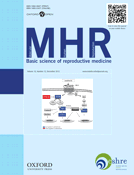
MOLECULAR HUMAN REPRODUCTION
Innovating Understanding in Human Reproductive ScienceMOLECULAR HUMAN REPRODUCTION, published by Oxford University Press, is a pivotal journal dedicated to advancing the field of reproductive biology. Since its inception in 1995, the journal has been recognized for its rigorous peer-reviewed research and substantial contributions to the understanding of molecular mechanisms underlying human reproduction. With an impressive impact factor and ranked within the top tiers (Q1 and Q2) across diverse categories including Embryology, Obstetrics and Gynecology, and Reproductive Medicine, it stands as an essential resource for researchers, healthcare professionals, and students alike. The journal aims to publish cutting-edge research that explores the complexities of human reproduction at the molecular and cellular levels, fostering a deeper understanding that can be translated into clinical practice. Although it currently operates under a subscription model, the valuable insights and groundbreaking findings featured within its pages continue to influence the trajectory of reproductive health research globally. Located in the heart of Oxford, United Kingdom, the journal remains committed to addressing vital challenges in the field and promoting innovative scientific dialogue.
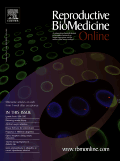
REPRODUCTIVE BIOMEDICINE ONLINE
Innovating solutions for contemporary reproductive challenges.Reproductive Biomedicine Online, published by Elsevier, is a leading peer-reviewed journal that has established itself as a pivotal resource in the fields of Developmental Biology, Obstetrics and Gynecology, and Reproductive Medicine. With an impressive Impact Factor and a Q1 ranking in its respective disciplines as of 2023, this journal provides a platform for innovative research and comprehensive reviews that contribute to advancements in reproductive healthcare. The journal boasts rigorous Scopus rankings, placing it within the top tiers of its categories, which underscores its significance in shaping contemporary biomedical inquiry. Although not open access, it remains widely accessible through institutional subscriptions, making its wealth of knowledge available to researchers, clinicians, and students alike. Since its inception in 2000, Reproductive Biomedicine Online has been committed to fostering a deeper understanding of reproductive processes and biomedicine, ensuring that its content remains relevant and impactful in addressing challenges in reproductive health, thereby championing exceptional scientific discourse.

JOURNAL OF ASSISTED REPRODUCTION AND GENETICS
Empowering Research in Reproductive MedicineThe Journal of Assisted Reproduction and Genetics, published by Springer/Plenum Publishers, serves as a pivotal platform for innovative research and advancements in the fields of reproductive medicine, genetics, and developmental biology. With an impact factor that positions it within the upper echelon of its categories—including Q1 rankings in Obstetrics and Gynecology and Reproductive Medicine—this journal plays a critical role in disseminating high-quality, peer-reviewed studies that significantly influence clinical practices and research directions. Renowned for its commitment to enhancing understanding in areas such as assisted reproductive technologies, genetic screening, and reproductive health, the journal attracts contributions from leading experts worldwide. With a broad scope encompassing original research, case studies, and comprehensive reviews, the Journal of Assisted Reproduction and Genetics continues to be an essential resource for researchers, healthcare professionals, and students dedicated to the advancement of reproductive sciences.
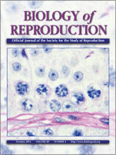
BIOLOGY OF REPRODUCTION
Driving Discoveries in Reproductive MedicineBIOLOGY OF REPRODUCTION is a premier journal published by Oxford University Press Inc, dedicated to advancing research in the fields of reproductive biology, cell biology, and reproductive medicine. With an impressive impact factor and a strong ranking as Q1 in reproductive medicine and miscellaneous medicine, as well as Q2 in cell biology, this journal offers a vital platform for disseminating innovative findings and pivotal studies that shape our understanding of reproductive processes. Since its inception in 1969, BIOLOGY OF REPRODUCTION has become a key resource for scientists, clinicians, and students alike, providing insights that drive the future of reproductive health and research. Although not an open-access publication, it remains a respected authority, reflecting a commitment to high-quality peer-reviewed articles. The journal's comprehensive scope includes molecular and cellular aspects of reproduction, reproductive health, and associated technologies, making it indispensable for professionals looking to stay at the forefront of breakthroughs within the field.
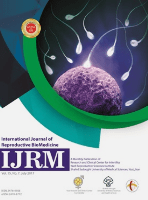
International Journal of Reproductive Biomedicine
Fostering knowledge exchange in obstetrics and gynecology.The International Journal of Reproductive Biomedicine, an esteemed publication by SHAHID SADOUGHI UNIVERSITY OF MEDICAL SCIENCES, serves as a pivotal platform in the fields of obstetrics and gynecology as well as reproductive medicine. Established in 2011 and transitioning to an open access model in 2015, this journal facilitates the dissemination of innovative research and critical findings to a global audience, particularly focusing on advancements in reproductive health and biomedicine. With an impact factor reflective of its commitment to high-quality scientific inquiry, the journal has achieved a notable ranking of Q3 in both its categories for 2023, contributing to its growing influence within the academic community. Researchers and professionals benefit from its broad scope, which encompasses a range of topics essential to reproductive health, thus fostering a rich exchange of knowledge. The journal's accessibility allows students and professionals alike to engage with the latest findings and contribute to ongoing discussions within this vital field of study.

Reproductive Biology
Transforming Knowledge into Practice in Reproductive BiologyReproductive Biology is a premier academic journal published by Elsevier, dedicated to advancing the field of reproductive science. With an ISSN of 1642-431X and an E-ISSN of 2300-732X, this journal has been serving the scientific community since its inception in 2001. It notably holds a Q1 ranking in Animal Science and Zoology as of 2023, underscoring its significant impact and prominence in this domain. The journal encompasses a wide array of topics surrounding reproductive biology, including but not limited to endocrinology and developmental processes, making it an essential resource for researchers and practitioners. Although it operates under a traditional access model, its comprehensive scope offers valuable insights that contribute to advancements in reproductive health, animal conservation, and biotechnology. Published in the Netherlands, Reproductive Biology aims to foster interdisciplinary collaboration and innovation, ultimately enriching our understanding of reproductive mechanisms across various species. Researchers, professionals, and students alike will find this journal an indispensable platform for disseminating groundbreaking research and engaging with the latest findings in reproductive science.

Human Reproduction Open
Fostering collaboration for a healthier future.Human Reproduction Open, published by Oxford University Press, is a prestigious open-access journal dedicated to advancing the field of reproductive health and medicine since its inception in 2017. With an E-ISSN of 2399-3529, the journal provides a vital platform for researchers, clinicians, and academics to disseminate innovative findings in obstetrics, gynecology, and reproductive medicine. It is recognized for its impactful contributions, holding an impressive rank of #3 out of 209 in Medicine - Obstetrics and Gynecology, #2 out of 90 in Medicine - Reproductive Medicine, and #1 out of 21 in Medicine - Embryology, placing it in the top percentiles of its respective categories. The open-access model ensures that research is freely accessible, fostering collaboration and knowledge sharing among professionals and students alike. With a commitment to high-quality, peer-reviewed publications, Human Reproduction Open plays a crucial role in shaping the future of reproductive health research and practice, serving as an essential resource for those dedicated to improving outcomes in this dynamic field.

THERIOGENOLOGY
Advancing veterinary reproduction through groundbreaking research.THERIOGENOLOGY is a prestigious academic journal published by Elsevier Science Inc, dedicated to the field of veterinary reproduction and animal science. With an impressive impact factor and recognized as a Q1 journal in various categories including Animal Science and Zoology, Equine, Food Animals, and Small Animals, THERIOGENOLOGY has established itself as a vital resource for researchers, practitioners, and students alike. Founded in 1974, the journal covers a broad spectrum of topics related to reproductive physiology, biotechnology, and the health management of food and companion animals. Although it does not currently offer open access, researchers can benefit from its comprehensive articles and reviews that push the boundaries of knowledge in veterinary science. With a significant placement in the Scopus rankings, ranking #1 in multiple veterinary categories, THERIOGENOLOGY serves as an essential platform for advancing the understanding of reproductive strategies and practices, thereby contributing directly to the fields of animal husbandry and veterinary medicine.
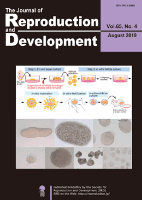
JOURNAL OF REPRODUCTION AND DEVELOPMENT
Empowering research in reproduction and development.JOURNAL OF REPRODUCTION AND DEVELOPMENT, published by the SOCIETY REPRODUCTION & DEVELOPMENT-SRD in Japan, is a leading peer-reviewed journal dedicated to advancing the field of reproduction and development in animal sciences. With a notable impact factor reflected in its prestigious Q1 Quartile ranking in Animal Science and Zoology, the journal aims to disseminate cutting-edge research that explores the complexities of reproductive biology, developmental processes, and their implications for agriculture and biodiversity. This journal invites contributions that span multidisciplinary interests, thereby facilitating the integration of scientific knowledge and practical applications. Researchers, professionals, and students can benefit from the insights shared within its pages, as it strives to foster collaboration and innovation in the field. The journal’s comprehensive scope and esteemed reputation, underscored by its Scopus rank of #115 out of 490 in the category, make it an invaluable resource for anyone invested in the study of reproduction and development.

Reproductive Medicine and Biology
Innovating insights in reproductive medicine and biology.Reproductive Medicine and Biology, an esteemed journal published by WILEY, stands at the forefront of advancements in the field of reproductive health and associated biological sciences. With an impact factor that underscores its relevance—ranking in Q1 for Reproductive Medicine and Q3 in Cell Biology—this journal is distinguished by its commitment to disseminating high-quality, peer-reviewed research since its transition to Open Access in 2002. Based in Japan, the journal caters to a global audience, providing vital insights into reproductive biology, therapeutics, and innovative practices. With Scopus rankings placing it at #22 out of 90 in Reproductive Medicine and a commendable percentile ranking, Reproductive Medicine and Biology aims to foster dialogue and knowledge transfer among researchers, professionals, and students, paving the way for breakthroughs in understanding reproductive health.